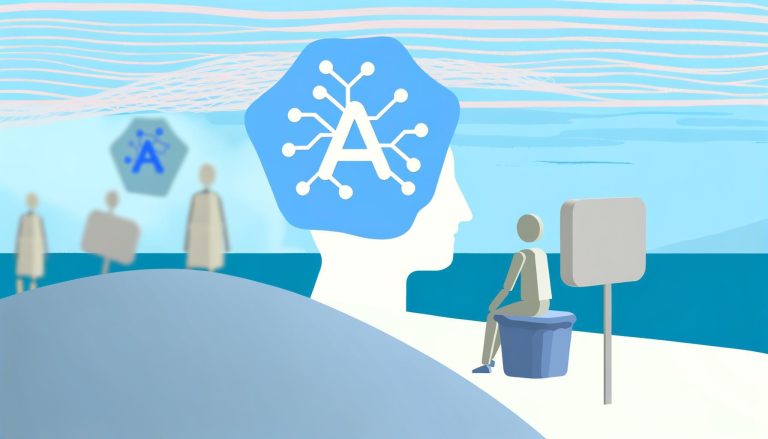In today’s digital age, our reliance on smartphones has skyrocketed, leading to the emergence of a relatively new phenomenon: nomophobia, or the fear of being without a mobile phone. It’s a term derived from “no-mobile-phone phobia” and affects more individuals than you might realize. As we become increasingly dependent on technology to manage our professional, personal, and social lives, it’s easy to understand why the thought of being disconnected can provoke anxiety for many. In this article, we explore AI techniques for managing and overcoming nomophobia, alongside some practical tips and benefits of staying grounded in a rapidly evolving digital world.
Understanding Nomophobia
What is Nomophobia?
Nomophobia stems from the excessive anxiety about being without one’s mobile phone. This can manifest in various ways, from avoiding places without mobile signal to compulsively checking notifications. The constant need to stay connected and the fear of missing out (FOMO) significantly contribute to this phobia.
Symptoms of Nomophobia
- Feeling anxious or panicky when the phone is not accessible.
- Constantly checking the phone for messages, notifications, or updates.
- Spending excessive time on mobile devices at the expense of other activities.
- Experiencing difficulty in concentrating on tasks without using the phone as a distraction.
- Increased irritability when unable to use the phone.
AI Techniques for Managing Nomophobia
Personalized Digital Well-being Plans
AI can help create personalized digital well-being plans based on individual usage patterns. By analyzing how and when a person uses their phone, AI can suggest specific interventions to reduce dependency. These plans might include:
- Setting daily screen time limits tailored to individual needs.
- Providing reminders to take breaks from screen time.
- Offering alternative activities to engage in when the phone is not in use.
AI-Powered Mindfulness Apps
Several AI-powered mindfulness apps are available that help users practice mindfulness and reduce anxiety related to nomophobia. These apps use machine learning algorithms to offer personalized meditation sessions, breathing exercises, and stress management techniques. Some popular mindfulness apps with AI features include:
- Calm: Offers guided meditations and sleep stories.
- Headspace: Provides mindfulness programs tailored to reduce anxiety.
- Waking Up: Features courses on mindfulness and philosophy guided by AI recommendations.
Social Connection Balancing
AI can analyze your interaction patterns on social media and recommend a balanced approach to online and offline social interactions. This includes:
- Identifying times of day when you are most active online.
- Suggesting face-to-face social interactions based on your online activity.
- Monitoring emotional responses to online interactions and suggesting adjustments to improve well-being.
Practical Tips for Overcoming Nomophobia
Create Phone-Free Zones
Designate specific areas in your home or workplace where mobile phones are not allowed. This could be the dining area, bedroom, or meeting rooms. Establishing these zones helps you gradually reduce reliance on your phone while performing other activities.
Set Specific Screen Time Goals
Utilize phone settings or third-party apps to set daily or weekly screen time limits. AI can monitor your phone usage patterns and notify you when you are approaching your limit, helping you stay mindful of your device usage.
Engage in Offline Activities
Finding hobbies and activities that do not involve screens is crucial in overcoming nomophobia. Whether it’s reading a book, practicing a sport, or gardening, these activities provide a much-needed break from digital distractions.
Practice Mindfulness
Engage in regular mindfulness exercises to stay grounded and present. Simple techniques like deep breathing, progressive muscle relaxation, and guided imagery, often facilitated by AI-powered apps, can significantly reduce anxiety levels associated with nomophobia.
Slowly Reduce Dependency
Gradually decrease the amount of time you spend on your phone each day. Start with setting small, achievable goals and progressively work towards longer periods without checking your phone. Tracking your progress and celebrating small victories can keep you motivated.
Turn Off Unnecessary Notifications
Notifications can create a sense of urgency and interrupt your daily tasks. By turning off non-essential notifications, you can decrease the compulsion to check your phone frequently.
Get Support
Reach out to friends, family, or support groups who understand and can help you manage your fears. Sometimes, talking about your concerns and getting an outside perspective can be the first step towards effective management of nomophobia.
Benefits of Overcoming Nomophobia
Overcoming nomophobia not only reduces anxiety and stress but also has numerous other benefits, such as:
- Improved Focus: With fewer distractions, you can better concentrate on tasks and enhance productivity.
- Better Sleep: Reducing screen time before bed significantly improves sleep quality.
- Enhanced Social Interactions: Engaging more with people around you strengthens personal connections and improves emotional well-being.
- Physical Health: Spending less time on screens can encourage more physical activities and contribute to better overall health.
Conclusion
Nomophobia is an increasingly prevalent issue that can significantly impact one’s mental and physical well-being. However, with the aid of AI-powered techniques and mindful strategies, managing and overcoming this fear is entirely achievable. By incorporating personalized digital well-being plans, practicing mindfulness, and engaging in offline activities, you can reclaim a balanced and fulfilling lifestyle.
Implementing these strategies individually can bring about gradual but meaningful changes. Remember, overcoming nomophobia is a journey, and it’s perfectly okay to seek support along the way. Taking small, consistent steps will significantly contribute to your overall well-being and help you build a healthier relationship with technology.
If you’re looking for tools to support your journey in managing anxiety and improving your overall mental well-being, consider using apps like Zenora. Zenora’s features, such as mood and habit tracking, goal setting, and journal entries, can provide the structure and insights needed to thrive in the digital age.





